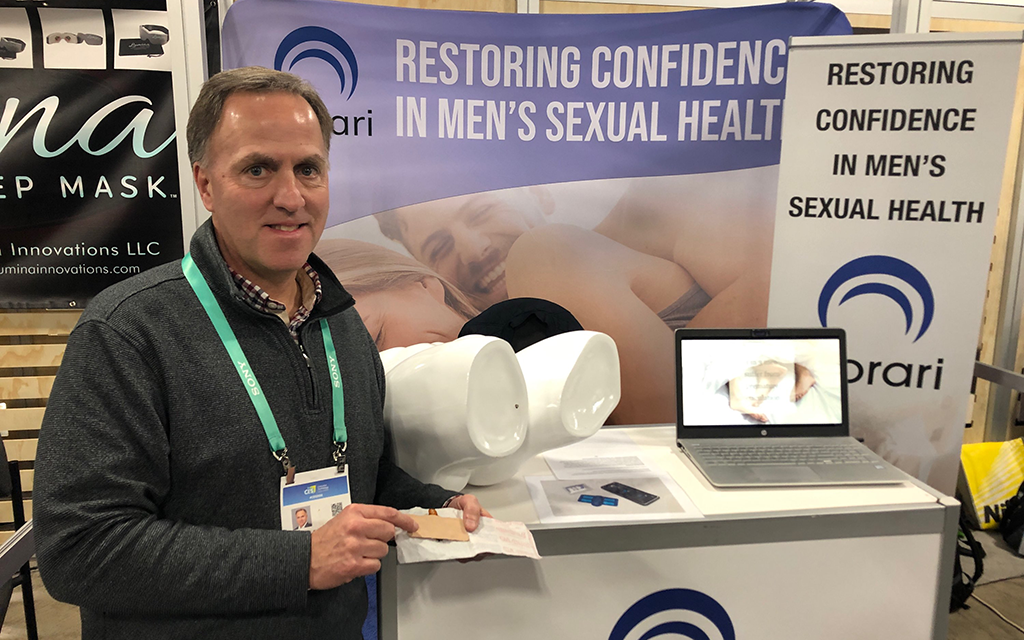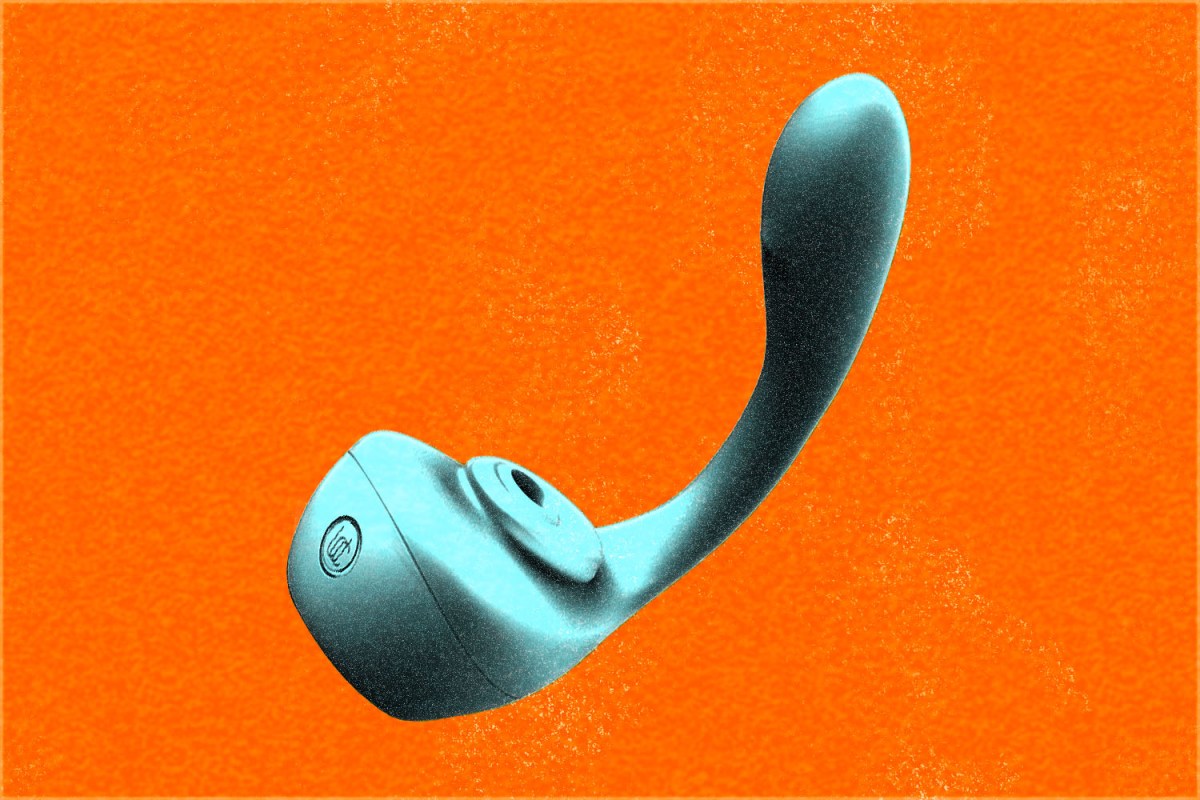In case you hadn’t noticed, CES was a little hornier than usual this year. The annual Consumer Electronics Show in Las Vegas featured an unprecedented number of sex-adjacent technologies and products, with roughly a dozen companies showcasing everything from vibrators and toys to a first-of-its-kind wearable treatment for premature ejaculation.
It’s a major shift from the 2019 edition of the tradeshow, when sex-tech company Lora DiCarlo found itself at the center of a controversy after the Consumer Technology Association awarded, then rescinded, then finally reinstated a prize for the brand’s Osé personal massager.
Following public backlash in the wake of the Lora DiCarlo saga, CES decided to expand its coverage purview this year, instating a one-year sex tech trial at the 2020 show. The result was a small but vocal corner of the Health and Wellness expo at CES 2020 that transformed into a veritable mini sex-tech wonderland, with new products not only from Lora DiCarlo, but also likeminded brands like Dame, Lovense, Ohmibod, Pulse and MysteryVibe.
“We were thrilled to be at CES to debut two new additions to the Osé family of pleasure devices, and to continue to advocate for gender equity in the tech industry,” Lora Haddock, founder and CEO of Lora DiCarlo, tells InsideHook. “After the 2019 events, we became change agents and helped to provide a positive evolution for the sexual health and wellness industry. We’re proud of our advocacy, which helped create a safer and more inclusive environment for all CES attendees.”
Other leaders within the industry were quick to credit Haddock’s influence in transforming CES’s attitude toward sex tech. Bryony Cole, CEO at sex tech organization Future of Sex, says she doubts the technology would have made an appearance at CES this year if it weren’t for the controversy and the swift activism that followed.
“Lora Haddock taking a stand created this space for brands to have a voice,” Cole tells InsideHook. “It is a great signal for the wider tech community to pay attention and take sex tech seriously.”
Sex expert Jess O’Reilly, PhD., host of the @SexWithDrJess Podcast, agrees. “The sex-tech industry is estimated to grow to $50 billion by 2025 by some estimates,” she tells InsideHook. “The tech industry [at large] simply cannot afford to ignore its innovations, impact and trends.”
While much of the conversation surrounding those innovations, impact and trends has rightfully focused on female-oriented sex tech (or, as DiCarlo more appropriately puts it, “products for people with vaginas”), there is plenty of room in the industry for advancements that appeal to all genders, including men.
Cole tells us that “male sexual wellness will be the next trend,” and evidence of that trend was on display at CES, with sex-tech startup Morari Medical making waves after debuting a prototype for a wearable, disposable solution to premature ejaculation. The as-yet nameless device, which Morari Medical founder and CEO Jeff Bennett says he hopes will be available to the public by mid-2021, is a transdermal patch placed in the perineum area during sex that works to delay ejaculation using neuromodulation as a means of inhibiting the nerves of the penis.

Sound painful? Don’t worry, it’s not. Bennett compares the sensation to a pleasurable “tickle,” adding that despite some media speculation to the contrary, the device won’t pull any hair in the area upon removal.
“It’s not like a bandaid where it rips out the hair,” Bennett tells InsideHook, explaining that the product uses “a very novel substance” designed to adhere to the skin without causing any discomfort, regardless of the wearer’s grooming habits.
Bennett positions the device, which he says will be available over-the-counter for men who suffer from clinical PE as well as those simply interested in extending their sex sessions, at the intersection of sexual health and pleasure — two pillars that are increasingly coming to be seen as one and the same within the broader sexual wellness community.
Related: The 26 Best and Worst Things at CES
“A pleasure product provides less stress and better sleep, which improves overall health and wellness,” says Bennett, adding that while the Morari Medical device “addresses the legitimate medical issue of premature ejaculation,” the product is also a device designed to enhance the sexual experience for all parties involved.
“This is not just a male issue, this is a couples issue,” says Bennett. “Our product isn’t just for PE, it’s for delaying ejaculation. Whether you meet the definition of PE or you don’t, it can be useful for delaying the experience, and both parties benefit from it.”
If CES 2020’s newfound horniness was little more than an attempt to atone for last year’s sins against the sex-tech community, at least it didn’t fall flat. The media frenzy surrounding horny CES proves that the dawn of a new, technologically advanced sexual revolution is upon us, and it’s one that transcends gender.
“The potential benefits of sex tech apply regardless of gender,” says O’Reilly. “The industry is shifting, and we now use sex tech not only to address potential issues, but also for the sake of pure pleasure itself. This has opened up new options for sex toys for all genders — including men.”
The Charge will help you move better, think clearer and stay in the game longer. Subscribe to our wellness newsletter today.
























